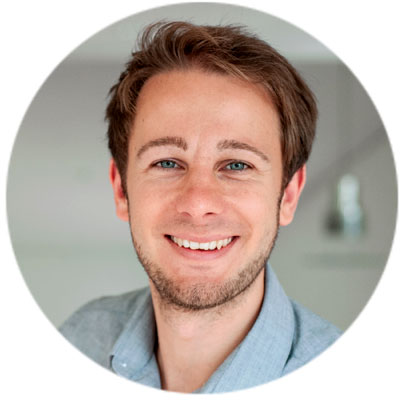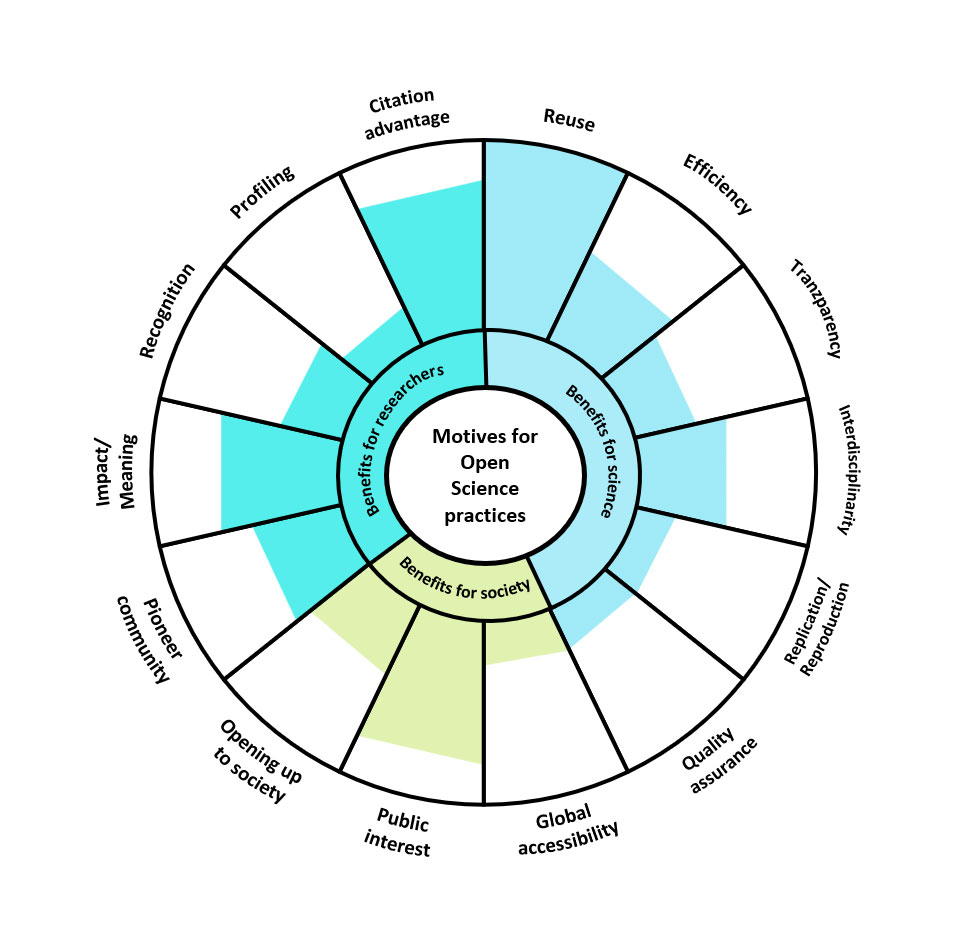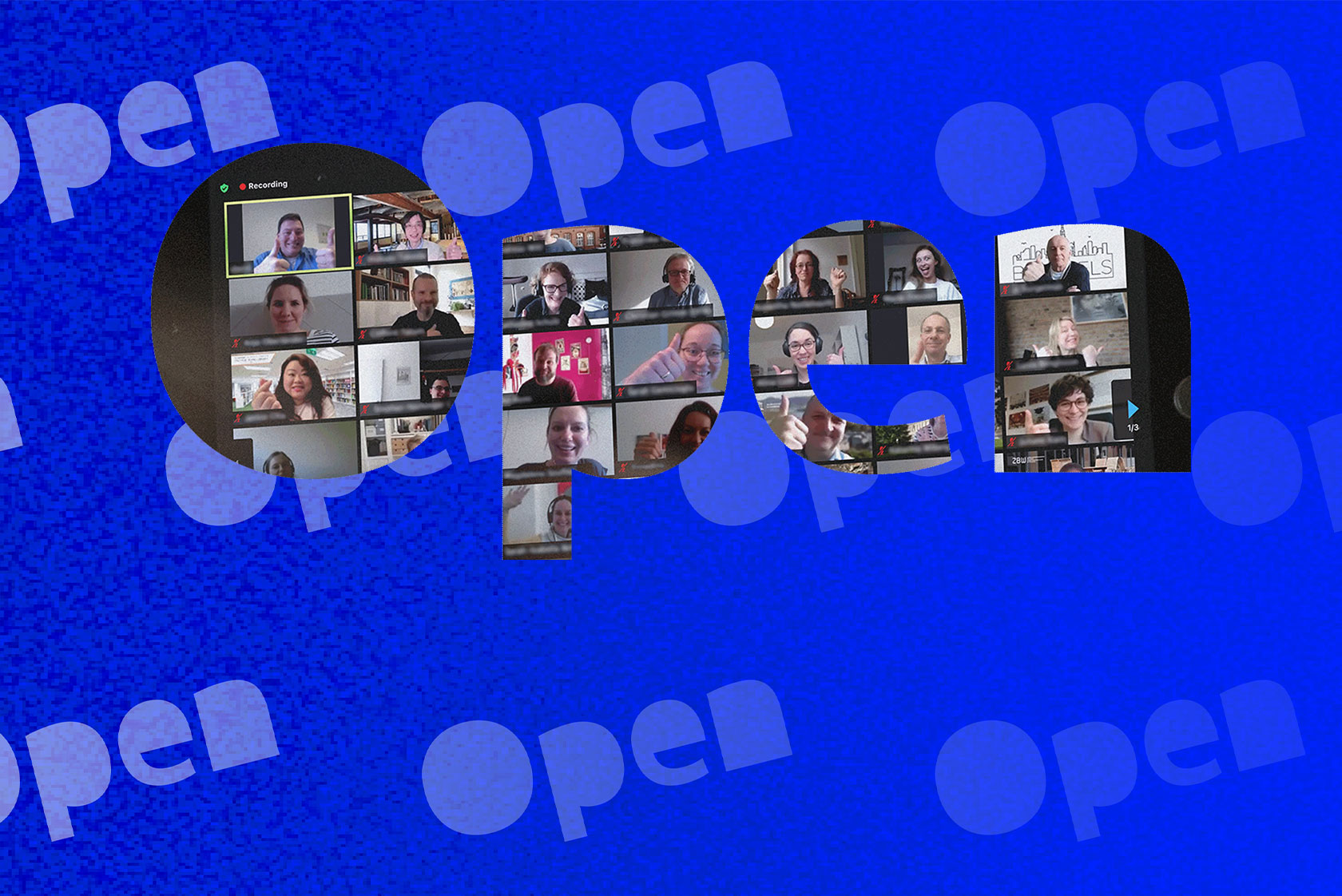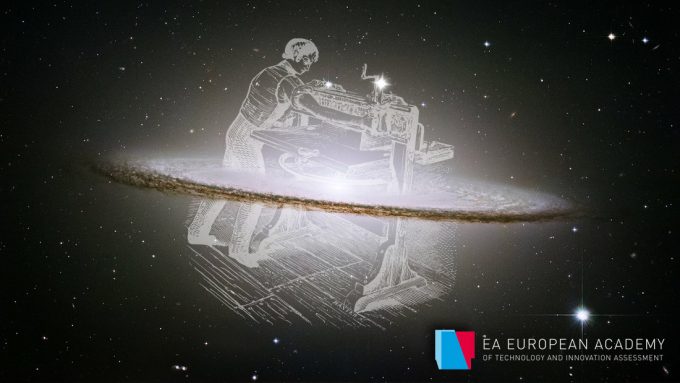
Open Science Award Winners: Insights and Findings From a Pioneering Practice
What motivates Open Science pioneers? In his doctoral project, science researcher Ronny Röwert uncovers the motives of Open Science pioneers. In an interview, he explains his findings and gives tips for communicating with researchers.
Interview with Ronny Röwert

In his doctoral project, Ronny Röwert (TU Hamburg) investigated why researchers practice Open Science. To do this, he focused on those researchers who have been practising Open Science for a relatively long time and to a very extensive extent, namely Open Science award winners from the German science system. In this interview, he reveals what we can learn from these pioneers in the field of Open Science and why we should all dare to be more courageous.
What did you find out in your doctoral thesis? What motivates scientists to do Open Science?
I was surprised myself at how many reasons there actually are for practising Open Science. I was able to crystallise 14 motives in total as reasons. In addition to the familiar personal reasons, such as citation advantages or the desire for recognition for one’s own work, there are also reasons that are relevant to the research community, such as that one’s own research is used and striving for efficient work or new collaborations. However, I was also able to find a few reasons that had not yet been discussed in the literature, for example, a sense of belonging to a pioneering community, like being anti-mainstream, or sense and impact orientation are also part of it. Therefore, if I spend so much time on it, and in science this is often also leisure time, then it really has to make sense, and that is why many people say that it has to be open.
The exciting thing is that they all gave at least three or four reasons, and always altruistic as well as careerist reasons in equal measure. Thus, you cannot say that these are the do-gooders and these are the ones who do it selfishly. Rather, it is always an interplay of very personal and social reasons, and perhaps also a few altruistic reasons. There are many reasons, and perhaps we need to take more account of this if we want to support researchers in establishing Open Science.
Could you identify different types in terms of motives?
I thought there were types like the egoist or the do-gooder. But in the end, I had to realise at some point that the exact opposite is true. The core result for me is that there are no types. Even with a scientist who says she only does it to make science better, you can find relatively valid personal reasons such as citation advantages. And at the other extreme, a scientist who said he was totally egoistically driven, showed convictions about what the science system and society should look like and his own part in it, which are quasi selfless reasons. Exactly these two extremes, which at the same time also unite the other extreme, that is the core result.
What conclusions do you draw from this for communication with researchers about Open Science?
The existence of several reasons for Open Science must also be in the back of our minds if we want to address researchers and bring them along. Then we have to argue in a diverse, multifaceted way, on different levels, and not just cite one or two social reasons for Open Science.
How do you explain these results?
All of them emphasise the enormous effort involved in Open Science and that it is also a big resource issue, even if they themselves do not practice it in quite such a pioneering way. It is, in the words of the Open Science laureates interviewed, like “an extra steep hill” or “the extra 20 percent of the mile they have to go”. If it is that much effort, then there must be several reasons for it. Actually, they all give many reasons for doing it anyway. For me, this is also the key to understanding why it is so complex, why so many motives are at work.
Are there differences in motivations, for example in career stages?
You can see that those who feel a strong sense of belonging to a pioneer community are particularly convinced and implement Open Science very consistently, for instance they insist on it in all projects. Especially when you do cooperative research, it is also a negotiation process.
The other aspect is career advancement. The desire to re-use one’s own methods and results and to prepare them in a way that makes it easier for others to continue working with them increases when one has actually been in the science system longer. Because some reasons are not yet comprehensible at the beginning of a research career. Nevertheless, there are no such strong patterns and at some point, I had to say goodbye again to this type thinking and acknowledge that the result is so multi-layered.
What differences could you observe between the various disciplines?
Through its influence on socialisation, the discipline has a decisive influence on the formation of identity and the understanding of one’s profession as a scientist. In awarding the prizes and awards for Open Science, the juries paid great attention to a balanced distribution of disciplines, so that despite my small sample, it represents many disciplinary contexts, from computer science and psychology to sports science, history and literary studies. In data-driven disciplinary contexts such as economics or quantitative sociology, Open Science understandings and practices are catching on more quickly, while in disciplines, which previously had less Open Science affinity, such as architecture or history, the idea of Open Science is being lived out in more diverse ways, for example through increased Citizen Science approaches. Ultimately, each discipline, must define for itself how Open Science can concretely enrich research practice, including the professional societies.

Motives for Open Science practices
What are the strongest drivers?
The top one is definitely re-use. The second motive is to gain citation advantages. The third is the public interest, as I mentioned. That means, for example, that in publicly tax-funded research projects, one aims to justice to satisfy society and make the results accessible. After that, there are soft drivers such as an orientation towards impact and meaning, for instance that everyone says, “I’m not going to make all these efforts just to end up being one among many. That is why they position themselves in this pioneering role.
Have you also identified factors that inhibit researchers’ motivation for Open Science?
Yes, everyone mentioned very similar reasons. On the one hand, it is the whole career logic in science. On the other hand, there are general conditions, such as the fact that publishing in Open Access is sometimes simply too expensive, and other understandable reasons. These include research ethics issues, that if sensitive data is collected, it cannot be made openly available straight away.
You said in your talk at the tenth Open Science Conference: “Research Culture eats Open Science Strategy for Breakfast”. What did you mean by that?
I wanted to say a bit more pointedly, following Peter Drucker, that the most beautiful strategies are probably of no use because Open Science is about the core of the research culture. That means that the whole socialisation, how I present myself, how I move in everyday life, how I talk about my own research, how I act tactically, usually follows unwritten laws. If we really want to change something in the research culture, then we have to go to the core of socialisation and perhaps also start very early with young researchers, when they first really come into contact with research, for example when they produce their first data set. I think we also have to tackle other fields, such as lobbying more in professional societies, approaching the research training groups, the junior research groups, precisely where researchers are formed. Otherwise, the best Open Science strategy will be eaten for breakfast.
What advice would you give to Open Science avant-gardists to inspire their colleagues?
First of all, they don’t usually see themselves as Open Science avant-gardists. All the people I interviewed had this in common: although they had received an award for it, at the beginning of the interview they all said quasi shyly: “I think you’re interviewing the wrong person. I don’t actually do Open Science that much.” The bottom line is that it is unrealistic to completely open up your entire research practice. You won’t find that with anyone. I would advise describing as concretely as possible how you do it in order to convince colleagues. In other words, a literary scholar who discloses the negotiations with publishers, who shares sample emails about it, who says where it did not work out sometimes. What they learn from this for the next time, for the next application for a research project. In exactly this concreteness. We need to convey this more strongly, and we really need to awaken this realistic picture plus this spirit of research. Perhaps these different motives could also be a support. Talking about them and accepting that everyone has different reasons. What drives you, why could you imagine making an effort towards Open Access or open research data management in your next research project?
What tips do you have for early career researchers who are asking how they can best implement Open Science?
To put it bluntly, I would dare something like courage outbursts. In practical terms: maybe once a year, set yourself a reminder and go on a two- or three-hour retreat with yourself, perhaps also with colleagues. Why do I want to implement Open Science? How can I make my own research practice more open and transparent? Because I think there is such a force of normality that overwhelms you, and then you just rush after the next funding application or write the next grant application and so on, and actually forget what possibilities there are, even obvious ones. Then you simply exchange more information with the research data, repositories for the disciplines or your own university library about how it is actually possible to make publications openly accessible. I think at least once a year is a good time to talk about it. That would be my personal tip.
You might also be interested in this:
- ZBW Podcast “The Future is Open Science”: FOS 34 Warum Open Science zählt (German)
- Open Science Conference 2023: Old hurdles and new practical successes for the anniversary
- Open Science Symposium: Open Practices and Transparency in Economics
- Open Science Meet-Up: Working out the future together
- Open Science in economics: Selected Results of the ZBW Awareness Analysis 2022
Ronny Röwert (German) is a research associate at the Institute for Technical Education and Higher Education Didactics at TU Hamburg (TUHH). After studying economics and working at CHE Consult, Kiron Open Higher Education and the Stifterverband, he researches and teaches on digital and openness practices in educational and academic contexts. He shapes these topics, among other things, by coordinating the joint project “Open T-Shape for Sustainable Development”, within the framework of which the SDG Campus is being developed.
Portrait: Ronny Röwert©
View Comments

Open Science Conference 2023: Old Hurdles and new Practical Successes for the Anniversary
At the tenth anniversary of the Open Science Conference, several contributions...



